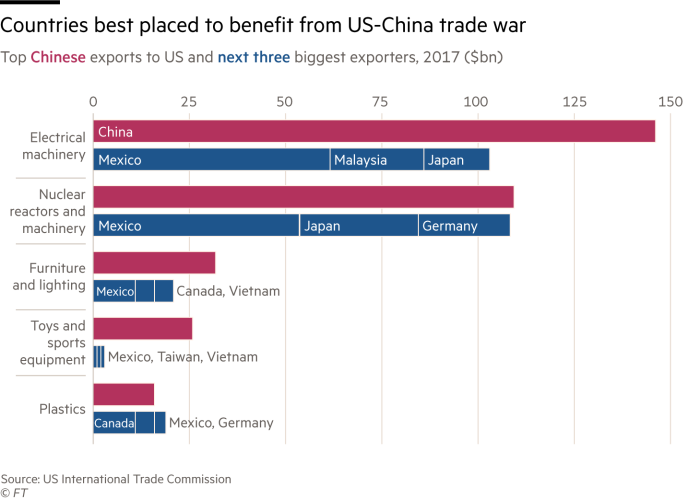Analysts said that the technology industry is the biggest potential goal of Washington's export strength, and some suppliers are considering moving its business out of China.
 < /p>
< /p>
On Monday, some families in Taipei watched the full moon while barbecue by the river to celebrate the annual Mid -Autumn Festival.However, for many executives of the electronic product company Wistron, this holiday cannot be passed.
We are running some models to evaluate the cost of restarting a motherboard production line in Taiwan. One of the executives said that this is because of Trump.
Weizhong manufacturing printing circuit boards, key electronic components on all electronic devices are fixed on these circuit boards and connected to each other.Like dozens of other Taiwanese manufacturers, the company has shifted most of the low technology content and labor -intensive production to mainland China from the 1990s.These components are then assembled into computers, servers and smartphones in mainland China or other places.
The technology industry has not been affected by Trump's latest round of trade in China (last week Washington levied 10%of tariffs on Chinese -American transit products worth about 200 billion US dollars).But the complex supply chain supporting the technology industry may be threatened soon.Analysts said that the technology industry is the biggest potential goal of Washington's export strength, and some suppliers are considering moving its business out of China.
Credit Suisse Taiwan Securities Research Director and Asian Semiconductor Research Director Randy Abrams said: The tariffs imposed so far only cover about 10%of technology products.However, many companies are obviously preparing to deal with more tariffs to further upgrade the trade war.
Many servers sold by technology groups such as Dell (Dell), HP (HP) are manufactured by Weixin.The motherboards of these servers sold in the US market are made in Zhongshan, China, and then assembled in Mexico.Mark Li, an analyst at TrendForce, a science and technology research institution headquartered in Taipei, said that Wei Chuang will be severely impacted by new tariffs.
Another large -scale electronic product founder, Quanta Computer, may also be impacted because some of its production bases are located in Shanghai.Tariffs will push up the cost of the company's servers provided by Google and Facebook.Mark Li said the company is considering the withdrawal of some production.
ABlan said: There are signs that production is moving outward from mainland China.He added that Delta, a Taiwan electronics manufacturer, acquired its Thai network equipment subsidiaries to flexibly transfer some production to this Southeast Asian country.
Credit Suisse said that cable and connector manufacturer LuxShare is building a production park in Vietnam and is evaluating the plans to set up factories in India, and the home appliance department of Samsung is moving part of the business to the United States.
However, such a transfer is not easy.Weixian's above -mentioned executives said: This is really a headache.Mainland China, which seems to be incomplete cheap labor and huge markets, has attracted Taiwan's downstream electronics manufacturers.The executive said: If we move back now, we have to invest a lot to maintain competitiveness.
Analysts added that because Taiwan's economy is close to full employment, if Taiwan wants to return some electronic products to the homeland quickly, it will need to relax labor immigration regulations.The labor market in Thailand is also too nervous, and only Vietnam is considered to have the ability to accommodate large -scale production transfer from China.
Abraland said: As the supply chain is watching, the order of automation equipment suppliers is slowing.

Although China has increased its share in global semiconductor production in recent years, the uneasy emotions in the downstream manufacturing industry have not existed in the industry.
About 50%of the world's semiconductor packaging and test capacity is located in China, but in the total exports of Chinese chips in 2016 and 2017, only 2.3%and 2%were flowing to the United States.The impact of tariffs on the semiconductor industry is small.
Most of the Taiwan semiconductor manufacturers headed by the industry -leading enterprise TSMC (TSMC) will not be impacted, because most of their manufacturing is completed in the local area.
Taiwan's chip design companies are considered more vulnerable to impact because they are highly focused on consumer electronics, and almost all these products are made in China.
However, it is unlikely to see any replacement effect in the trade war. Lin Jianhong said that because more than 90%of smartphones and laptops are assembled in China, there are almost no other choices.
Translator/He Li


